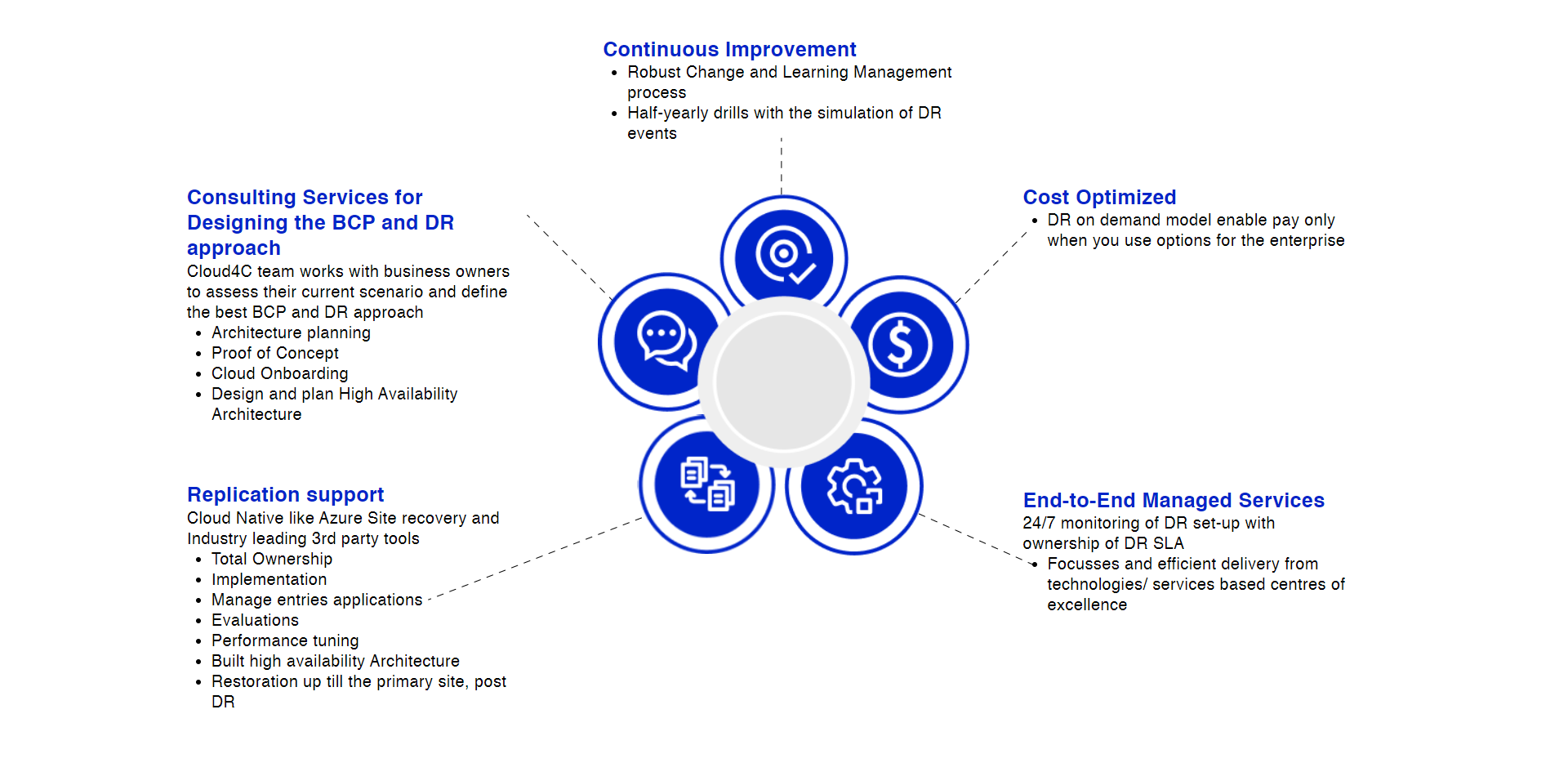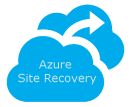There are also always the requirements of RTO and RPO, and SLAs must be met too, but it is all becoming more challenging by the day.
The process of protecting data is also evolving, with increasing requirements such as having to protect data at different locations, and from issues related to operations or ransomware.
Enterprise backup solutions have become the mission-critical technology as organizations come to depend more on their IT environments. Enterprise cloud backup is helping organizations protect their data, but the collateral benefits such as cost reduction and simplification of admin operations go a long way in improving business. Organizations also get more value out of their data assets and their compliance improves as well.
Cloud Engine’s enterprise backup solution helps enterprises reduce cost, secure their data, and streamline all operational and compliance requirements. We abstract complexities and integrate solution components to provide a right solution that extends to hybrid environments. We automate processes, operate and manage the solution, and offer 24/7 support with an assured SLA irrespective of environment landscape.
Downtime of the average data center cost
$8,851 per minute.
93% of companies that lost data for 10 days have filed for bankruptcy within one year.
93% of small businesses store data or backups in the cloud
Advantages
With Enterprise backup solutions, organizations can easily and quickly restore normal operations.
Enterprise backup solutions help enterprises avert ransomware attacks by detecting any unauthorized encryption.
Enterprise backup solutions improve resilience with automated recovery of mission-critical workloads.
Are you looking for cloud backup and Disaster Protection?
Disaster Recovery – End to End Services from Cloud Engine

Cloud Engine expertise in Disaster Recovery as a
Service (DRaaS) tools


Cloud Engine Enterprise Backup Solutions
Our expertise with all leading Public Cloud platforms makes it easy for us to maintain and manage enterprise backup in hybrid cloud environments. We abstract complexities and integrate solution components, presenting a reliable and cost-effective solution that extends to hybrid environments. Cloud Engine automates processes, operates and manages the solution, and offers 24/7 support with an assured SLA irrespective of the environment.
- Validate prerequisites for agent installation
- Firewall policy implementation
- Configure backup communication network and backup policy template
- Install backup agent installation in source machines and define targets
- Schedule backup jobs and manage backup storage
- Create and manage backup retention policy
- Configuration alert on backup job failure
- Monitor backup jobs for sucessful backup
- troubleshoot and trigger halted backup(s)
- Restore the backups in case of disaster/data loss/storage failure
- Create backup policy documentation
- Generate backup summary report on periodic basis
- Perform backup storage optimization
Stage 1
Stage 2
Stage 3
Stage 4
We begin with authenticating all the necessary prerequisites for agent installation. As part of the process, we implement the firewall policy and ensure configuration of backup communication network and backup policy template.
We install the backup agent in source machines and define targets. As part of the process, our Cloud Engine experts schedule backup jobs and also manage the backup storage. We are responsible for creating and managing the backup retention policy. We also configure alerts on backup job failure.
We monitor the entire backup process to ensure it is done successfully. Our Cloud Engine experts also troubleshoot and trigger halted backup. We assist with restoration on backup during any disaster, data loss or storage failure.
We take full responsibility for the backup policy documentation. We perform the backup storage optimization and also generate backup summary reports on a regular basis.
Challenges that enterprises must overcome
With growing complex IT environments, enterprises are facing new challenges to protect, recover, replicate and archive data. Here are some of the challenges that they have to overcome to stay ahead in the digital transformation journey:
 Protect massive data
Protect massive data
The recent IT trends such as Internet of Things, Big Data and extensive use of data-incentive applications are creating large amounts of data. With enterprises moving towards digital transformation, these trends are a part of the journey, and so is the data generated by them. This data is only going to exponentially increase year after year.
 Complicated environments
Complicated environments
As the data keeps growing day by day, enterprises are going to have to be prepared to handle complicated environments. Enterprises must be prepared to safeguard their data which is located on-premises, but also the data in public, private and hybrid clouds as well.
 Performance and compliance
Performance and compliance
With security and compliance only getting stringent, the pressure on enterprises is increasing to adhere to the stricter regulations. Along with this, enterprises should also keep in mind the impact on application and system performance.
 Fragmented tools
Fragmented tools
Most organizations are struggling to safeguard the vast data that is being generated. Enterprises are in search of solutions that will help them to simplify data protection.
 Cost
Cost
With the complexity of data protection increasing, enterprises are constantly facing the fear of increasing costs and budgets. The time has come for the enterprises to reduce their staff resources and do more with less.
Benefits of Enterprise Backup Solution
Speed & Scalability
Cloud Engine enterprise backup solutions offer quick and fast backup. With our enterprise backup solutions, we manage the backup capacity with a single system.
Minimize footprints
With Cloud Engine enterprise backup solutions, enterprises will be able to reduce the footprint that is needed for data transfer and data protection. Our solutions also help with minimizing the storage.
Easy management
Cloud-enabled
Cloud Engine supports cloud journey with its enterprise backup solution. Our cloud enterprise backup solutions will safeguard the data in public, private and hybrid clouds. We simplify backup and recovery on AWS, Azure, Google & Cloud Engine Cloud.
Disaster recovery
As part of Cloud Engine enterprise backup solutions, we use network-efficient replication, which helps in reducing the bandwidth requirements and costs. This also helps in improving the disaster recovery capabilities.
Need to meet business SLAs
Safeguard against operational issues & cyberattacks
Cloud Engine enterprise backup solution ensures that all mission-critical applications are safeguarded from operational issues and any hardware failures. With our cloud-based solution, we protect the enterprise data from disasters by replicating data across various sites. We also protect the data from cyberattacks with ultra-secure, encrypted storage.
Reduce Total Cost of Ownership
Cloud Engine enterprise backup solution helps enterprises lower their footprint and expenditure. We ensure that less time is spent managing backups and restores with our intuitive tools, reporting and analytics.
2000+ certified cloud experts worldwide with local presence in 26 countries
Migrated and managing 40000+ VMs
AIOps driven automation in Cloud Operations
High availability 99.95%
4000+ Global Enterprise customers
Zero friction business delivery model
24×7 support
Support hybrid infrastructures
12 years of rich experience in Cloud and Managed Services
Certified people resources on ITIL, COBIT, CDCP, CISA, CISSP, CISM, Six Sigma, PMP CCIE, MCP, CEH and more
Comprehensive disaster recovery and BCP portfolio Presence in 52 global locations
25 Centers of Excellence
Enterprise Backup – Frequently Asked Questions (FAQs)
What is Enterprise Backup?
Enterprise Backup means a backup storage system and business data management. The enterprise backup uses both the hardware and software of the computer to transfer the data to a secondary backup device.
What are the benefits of Enterprise Cloud Backup?
Enterprise cloud backup solutions are the best to safeguard data. Enterprises are opting for them because they come with great benefits, such as simple deployment and administration, reduction in frontline IT time, zero impact on performance, minimal or zero downtime and secure data storage.


